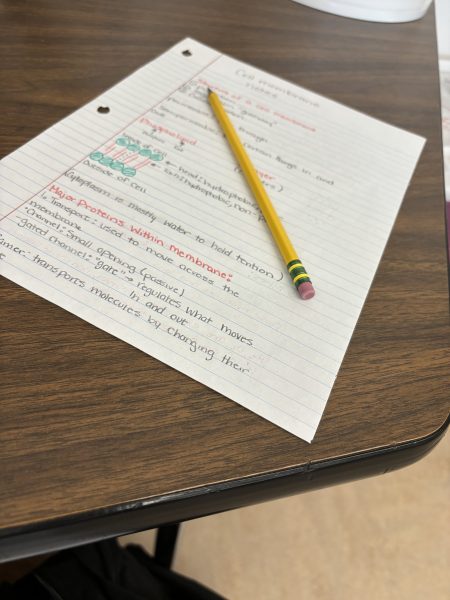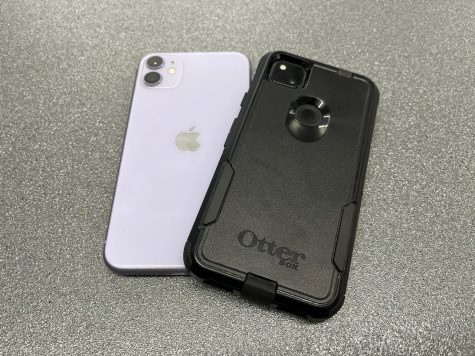PRO/CON: Should college athletes be paid?
September 20, 2013
College athletes deserve portion of profits they bring in
Most professional athletes make more money than the President; however, college athletes do not receive any (legal) forms of cold hard cash. The life of college athletes is completely unfair. They are scrutinized by the media and make news headlines. However, they will not receive any form of compensation for their play unless they make it into a professional sport.
For most college athletes, the sport consumes their time. In 2008, USA TODAY surveyed college athletes and found that two-thirds considered themselves athletes, not students. Division I football players claimed that they spend over 40 hours a week practicing or playing their sport, and less than 40 hours on academics. With such time commitments, sports and school, it is unreasonable to expect an athlete to have a job.
Playing a college sport doesn’t make money for the athletes, but it does make the colleges money. Every week these athletes show their stuff on national TV and the NCAA rakes in the dough. The NCAA reported that their projected revenue for 2012-2013 was $792 million. In 2008, Virginia Tech made $64 million off of college football alone. So since the NCAA makes that much money, why can’t they pay the people generating said revenue?
Many college athletes put their health at risk on a daily basis. Common injuries include concussions, torn muscles, and broken bones. Concussions leading to brain damage, not to mention painful migraines, are a major issue in many sports. The typical athlete in a contact sport has a 19 percent chance of getting a concussion each season according, to the University of Pittsburgh. The NFL reached a $765 million settlement this year with retired football players who sustained head injuries during their careers.
Concussions don’t just begin in the pros, and the side effects can linger well after an athlete’s college/pro career ends. It costs serious money to pay for the medical treatment of head-related injuries, money that many athletes will not make if they don’t make it to the professional level.
Many college athletes are glamorized by major media sources. They have become icons not only to high school and other amateur athletes, but also to the fans that watch them play. Their images are marketed and sold in the form of merchandise, like professional athletes. Major controversies have arisen over college athletes illegally profiting off merchandise. In 2011, five Ohio State players, were suspended for five games after they had sold some of their college merchandise to pay for such things as tattoos. None of this would have been a problem if these young and high-profile athletes were making a salary for their playing time.
As the main part of a multi-million dollar enterprise, college athletes need to get paid. Simply put, college athletes are exposed to too many risks to not share in the profits other organizations make from them. It is not fair, and it needs to change.
Paying players would end college sports, except most lucrative programs
The NCAA develops the rules, establishes postseason formats, and regulate just about every aspect of college sports. One of the most controversial regulations prevents college athletes from being paid. Many argue that the NCAA is swindling the athletes, using them to make millions of dollars while the athletes don’t get a penny of the profits. Last year alone, the NCAA made $871.6 million in revenue.
However, the people forget that the athletes are getting a free college education, something that only 0.3 percent of students at four-year institutions get, and they receive other advantages, such as expert coaching that could lead to a career in their respective sports. The athletes also get free access to some of the most high-tech training facilities in the world, including weight rooms and swimming pools that others have to pay expensive memberships fees to access.
Another common misconception is that the universities and colleges make bank off of college sports, specifically football. That is only true for a handful of schools, such as Notre Dame and University of Texas. Most schools can only pay what it takes to run the programs, and in some cases the schools lose money. In fact, a report by Dan Fulks of Transylvania University found that 106 of the 120 FBS (Division 1-A) either made no money or lost money in 2009.
Additionally, the 97 schools that do not have a football program in Division 1-A reported an estimated average loss of $3 million. Paying the athletes would put the schools even farther into the red, possibly even forcing schools to cut some sports. It is unfair to expect colleges to give these athletes a free education and then pay them money to play for them. The NCAA could not afford to pay the nearly 450,000 student athletes; they had to pay $800 million in expenses.
The entire culture of college football would be changed if the athletes were paid. College football is completely different from NFL football, and that’s a good thing. There is something special about the atmosphere of a college football game. The athletes still take pride in playing for their school. You don’t see the star player of the team that wins the national championship transfer schools after the season, but players leave a Super Bowl winning NFL team all the time, usually for a bigger paycheck. If you pay the players, then why even have the colleges sponsor the sports? Why not start a semipro league instead? If college athletes were to be paid, it would take away that sense of school pride. The college game would become nothing but a business, just like the NFL.














